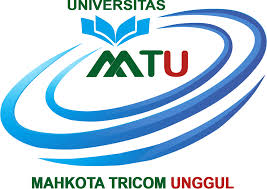The Evolution of Education in the Singularity Era: Facing the Opportunities and Challenges of Future Technologies
DOI:
https://doi.org/10.55927/ijems.v2i4.10803Keywords:
Singularity Technology, Education, Artificial Intelligence, Internet of Things, CollaborationAbstract
The singularity technology revolution promises profound transformations in education. This article explores how singularity technologies, including artificial intelligence (AI), machine learning, augmented reality (AR), virtual reality (VR), and the Internet of Things (IoT), are impacting teaching and learning methods. Exploring aspects of personalized learning, greater accessibility, and enhanced collaboration, the article examines the impact of these technologies on students, teachers, and educational institutions. While offering great potential to improve the quality of education, the adoption of singularity technologies also presents challenges such as infrastructure readiness, data security, and implementation costs. Through case studies and in-depth analysis, the article provides a comprehensive insight into how education will evolve in the era of singularity technologies
Downloads
References
Bostrom, N. (2014). Superintelligence: Paths, dangers, strategies. Oxford University Press.
Brynjolfsson, E., & McElheran, K. (2016). The Digitization of Business: From Data to Decisions. MIT Sloan Management Review.
Chen, X., & Zhang, X. (2021). Educational technology and the role of AI: A review of the literature. Journal of Educational Technology, 18(3), 45-60. https://doi.org/10.1016/j.jedu.2021.03.007
Davenport, T. H., & Kirby, J. (2016). Only humans need apply: Winners and losers in the age of smart machines. HarperBusiness.
Edwards, R., & Hall, E. (2018). Artificial intelligence and the future of education. Educational Technology Research and Development, 66(4), 931-950. https://doi.org/10.1007/s11423-018-9585-3
Hattie, J., & Timperley, H. (2007). The power of feedback. Review of Educational Research, 77(1), 81-112. https://doi.org/10.3102/003465430298487
Kukulska-Hulme, A., & Traxler, J. (2019). Mobile learning: The future of learning. Routledge.
Siemens, G. (2013). Learning analytics: The definition, the state of the art and the future. European Journal of Education, 48(4), 501-518. https://doi.org/10.1111/ejed.12010
Weller, M. (2020). The digital scholar: How technology is transforming scholarly practice. Bloomsbury Academic.
Zawacki-Richter, O., & Anderson, T. (2014). Online distance education: Towards a research agenda. Athabasca University Press.
Downloads
Published
How to Cite
Issue
Section
License
Copyright (c) 2024 Febri Pramudya Wardani, Sisca Widiyastuti, Hadassah Grace Ferisca, Tamariska Agape Scaferi, Lovely Olive Fesca

This work is licensed under a Creative Commons Attribution 4.0 International License.







